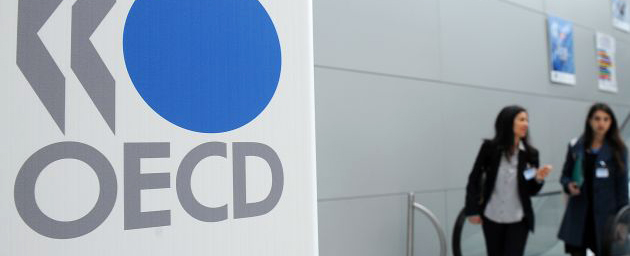Question. The latest economic outlook has a somewhat urgent tone with regards calls for the ECB to act. Is this a fair statement? And if so, why now?
Answer. As the euro has continued to disappoint in terms of growth and inflation has remained very weak, the urgency of ECB action has increased. One of the main causes of the poor performance is weak demand, interacting with long-standing structural problems. While there have been some positive developments like ECB decisions this year and the slowing pace of fiscal consolidation into next year, these have not been enough to counteract the bad news.
Euro area policy makers need to use monetary, fiscal and structural policies together, with each leg supporting the others, to strengthen demand and put the economy on a stronger sustainable growth path. In each area, there is scope to do more. In particular, the OECD recommends stronger monetary policy stimulus, use of all available fiscal space and more ambitious structural reforms. While countries under market pressure have made large reforms, others have been slow to react in recent years.
Q. The suggestion that the ECB may need to buy government bonds equivalent to 7% of GDP to reduce long term yields represents a shift in position. Does this represent a growing sense that there is a need to take action?
A.What is key for the ECB is to bring euro area inflation back around its 2% target and to make sure that inflation expectations don’t fall, lead to a vicious cycle of rising real interest rates and weakening inflation. The risk of stagnation and deflation have been rising, hence the need for stronger action. The exact details of what instruments the ECB uses and how far it should expand its balance sheet will depend on how markets and the economy responds. However, a clear commitment to doing what it takes is needed.
Q.The 7% figure is included as a footnote on P.55 of the General Assessment. Why was it not contained in the actual report?
A. [Footnotes are an integral part of the report. However, the 7% figure is an illustration of what might be needed based on the experience of other countries and research and comes with a range of caveats listed in the footnote]. As stated previously, what will ultimately matter is the policies ensure that demand gets back on track and the ECB’s inflation target is met. No one can know for sure. exactly what this will require.
Q. How do you see the situation in Europe developing over the coming months?
A. Euro area GDP is anticipated to remain very weak during the second half of 2014 and then gradually to pick up during 2015 towards strong but still modest growth rates. However, there was significant downside risks to this projection. Some key recent indicators point to significant weakness at the end of this year. In addition, there is a risk that demand could be weaker than expected, not least if strong policy action is not taken. It would not take a very large negative shock to delay the recovery, halt the fall in unemployment and to keep inflation at very low levels over the coming years. Further ahead, there is a lot of uncertainty about the medium-term path of the economy.
Q.Germany has been vocal in its opposition to such measures. What are the likely outcomes in the event that agreement cannot be reached?
Euro area economies are closely interconnected through trade and the financial system. It is difficult for any country to thrive, while the euro area is a whole is weak. There is therefore common interest in ensuring that the euro area is growing and avoids deflationary risks. All the main economies of the euro area are currently performing less well than they should and so they all have an interest in taking action to get the euro zone moving again.
Some countries are rightly concerned about high levels of public debt and structural problems that are holding back some euro area economies. However, these problems cannot be easily overcome while demand is so weak. Progress on reforms should be the paired with more supportive macroeconomic policies.






Be the first to comment on "“European leaders need to act”, says OECD’s Head of EU and Eurozone"